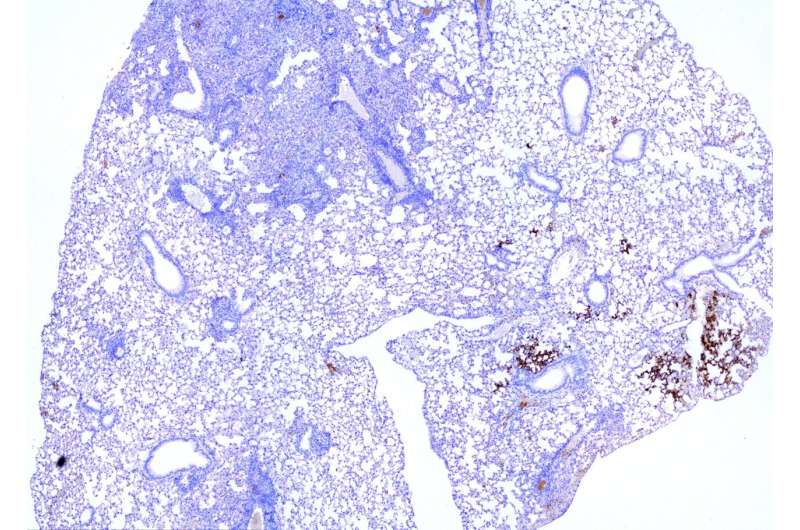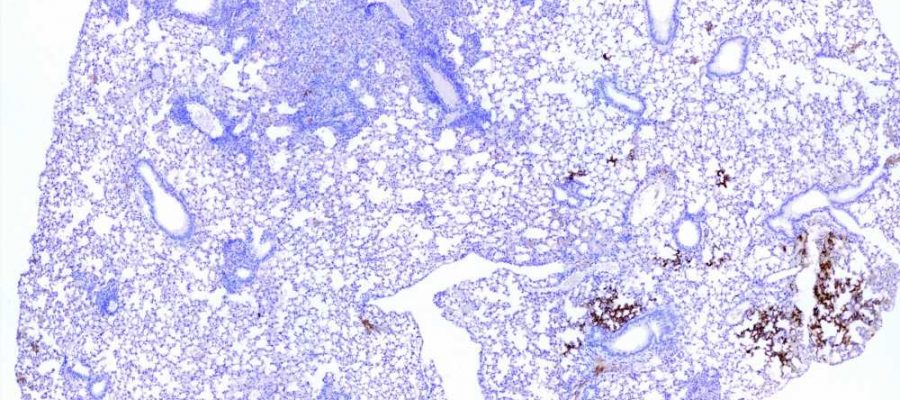
In mice, the immune response mounted against tuberculosis prevents them from developing COVID-19, according to a new study by Richard Robinson at The Ohio State University, U.S. and colleagues publishing March 24th in the open-access journal PLOS Pathogens.
Currently, the bacterium that causes tuberculosis, Mycobacterium tuberculosis, and the virus that causes COVID-19, SARS-CoV-2, are the leading causes of death from infectious disease worldwide. Tuberculosis is widespread, and scientists have questioned whether the immune response triggered by this serious respiratory infection might protect people from developing COVID-19. To find out more, researchers worked with two different strains of mice and infected them with M. tuberculosis. Then they exposed the mice to the COVID-19 virus and monitored them for signs of infection. They discovered that mice with tuberculosis showed no signs of COVID-19, likely because the pre-existing immune response to tuberculosis prevented the virus from proliferating in the lungs.
Altogether, the findings demonstrate that tuberculosis infection makes the lungs inhospitable to the COVID-19 virus in mice. If the same is true for humans, then this discovery may be one reason why there have been few reports of individuals with both tuberculosis and COVID-19 in the absence of other complications. The findings may also explain why countries tend to have high rates of infection of COVID-19 or tuberculosis, but not both. The researchers propose that future research should focus on the interaction between COVID-19 and tuberculosis infections in humans.
Source: Read Full Article
